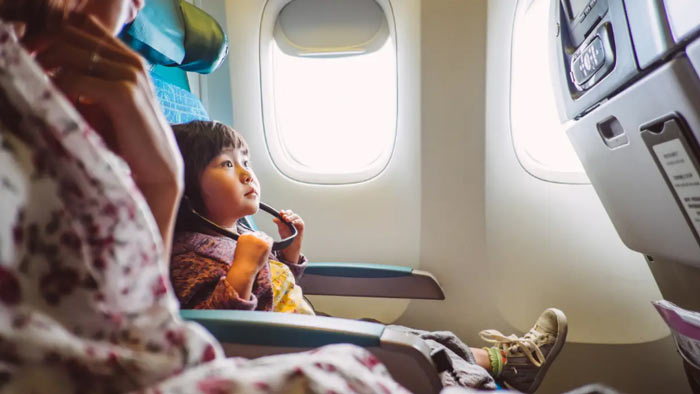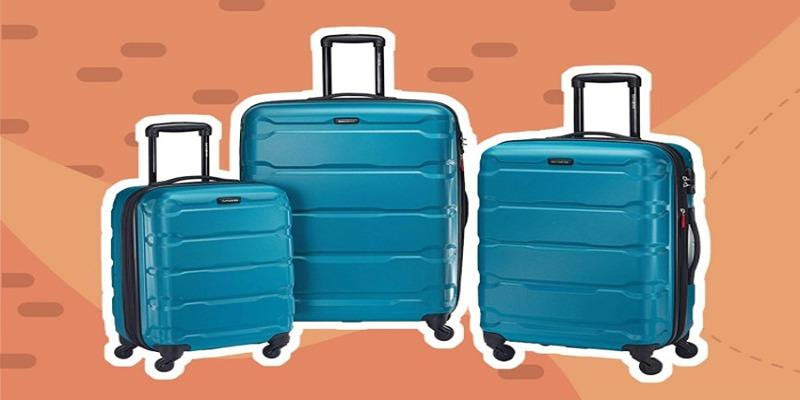How Do Airlines Accommodate Autism?
Feb 09, 2024 By Sean William
Traveling by air used to be a stressful experience for people with autism. Still, various airlines now offer accommodations and services that help autistic flyers feel more comfortable while in transit.
From sensory items onboard to assistance from staff members trained on autism sensitivity, the little things airlines are doing can make a huge difference.
In this blog post, we'll look at some measures airlines have taken to make travel easier for passengers on the spectrum—and how these steps could transform air travel worldwide.
Understanding What Autism Is and How It Impacts Travelers:
It's important to note that autism is a spectrum disorder, which means everyone with autism experiences it differently. Some people on the spectrum may be comfortable in crowded environments and loud noises, while others may feel overwhelmed. 
The inability to communicate—particularly when verbalizing needs or distress—is another common symptom of autism that can make navigating airports difficult.
Introducing Airlines Special Programs Designed For Autistic Passengers
Many airlines have recognized the unique needs of autistic travelers and taken proactive steps to make air travel easier for them. These are the following:
1. Allowing Early Boarding:
Airlines such as American, Delta, JetBlue, and United is allowing passengers with autism to board the plane early so they can settle in before the rest of the flight. This eliminates some of the stress of waiting in line and having people around them while they board.
2. Pre-Flight Access to Aircraft:
JetBlue and United offer passengers with autism the ability to get an early tour of the aircraft, allowing them to become familiar with their surroundings before takeoff. This can help autistic travelers with sensory processing issues feel more comfortable onboard.
3. Providing Special Kits:
Many airlines have started providing special kits to autistic passengers, including noise-canceling headphones, stress balls, and weighted blankets. These are designed to help passengers relax during the flight and make them more comfortable with their environment.
4. Having Crews Trained On Autism Sensitivity:
Delta and United have both implemented programs to train their staff members on autism sensitivity so they can better serve the needs of their autistic passengers. This includes providing special assistance during boarding and in-flight if necessary.
Pre-Flight Tips for Autistic Travelers
For a smoother journey, preparing before hitting the airport is important. Autistic passengers should consider doing the following:
- Inform the airline of any special needs when booking your tickets. This will give airlines time to prepare and plan for accommodations that make flying easier.
- Familiarize yourself with the airport layout before arriving. This will make navigating the terminal much less stressful and help you avoid confusion.
- Pack everything you might need for your trip, such as noise-canceling headphones or a fidget toy to focus on during takeoff and landing.
- Wear comfortable clothing that won't be too hot or cold.
- Give yourself extra time to go through the security checkpoint and board your flight, as a crowded or noisy environment can be overwhelming for some autistic passengers.
Making flying easier for people with autism is more than just an act of kindness—it's an opportunity to open air travel to a new group of travelers and create a more inclusive environment. More people on the spectrum may take to the skies in no time with the right accommodations.
At-The-Airport Considerations for Autistic Passengers
When planning a flight, there are extra considerations for passengers on the spectrum. Autistic flyers should inform their airline of any special needs they may have in advance so that accommodations can be made before they arrive at the airport.
Airports can also be stressful environments, and it's important to prepare ahead of time by familiarizing the person with autism with what to expect. This can include getting pictures of the airport, aircraft, and staff members that will be on board, as well as instruction about acceptable behavior in a commercial setting.
Airlines may also offer pre-boarding services for those needing more time to get settled into their seat or process the unfamiliar actions of the airport. This can be incredibly helpful in allowing autistic passengers to feel more relaxed and minimizing anxiety.
How Are Airlines Training Their Staff For Autistic Passenger Support?
1. Many airlines now offer courses to their staff members on sensitivity towards autistic passengers and how best to interact with them.
2. These courses help airline personnel better understand how autism affects people, so they can be more mindful of individual needs while assisting.
3. Airlines have also implemented processes for accommodating special requests from passengers who may need extra support during the journey.
4. Additionally, airlines provide sensory items such as noise-canceling headphones and weighted blankets to help autistic passengers feel more comfortable while in transit.
5. Some airlines have even launched specific initiatives to accommodate autistic flyers, such as dedicated check-in counters or pre-flight briefings tailored to the needs of autistic passengers.
6. Finally, airlines have also implemented programs that provide special assistance at airports, such as airport ambassadors who assist with navigating the facility and accompanying autistic passengers through security checkpoints.
FAQs
How can I help an autistic person on a plane?
Airlines now offer several accommodations to make flying more comfortable for autistic passengers. These include sensory items such as weighted blankets, noise-canceling headphones, and assistance from staff members trained in autism sensitivity.
It’s also helpful to allow the passenger extra time to board the plane and get settled and provide clear and concise communication.
What airline is autism-friendly?
Many airlines are now offering accommodations and services to make flying easier for travelers on the autism spectrum. Among the most autism-friendly airlines are American Airlines, Delta Air Lines, United Airlines, Southwest Airlines, Alaska Airlines, and JetBlue Airways.
Each airline has its own set of policies and procedures, so it’s important to research each one’s policies to ensure the smoothest travel experience.
What is an autism code for airlines?
An autism code is a special designation that can be added to an airline ticket indicating the passenger has a form of autism.
This allows the airline staff to be aware of the passenger's special needs and provide extra assistance if needed. The code is not mandatory but can help ensure a smoother travel experience.
Conclusion:
Air travel has undeniably become significantly more accessible to people with autism. The initiatives implemented by airlines to make air travel more comfortable for autistic passengers have been instrumental in helping to reduce the stress and anxiety associated with flying.
Going forward, airlines will continue to improve their onboarding services to ensure that everyone can enjoy a safe and pleasant flight experience—regardless of where they are on the spectrum. We hope air travel can become even more autism-friendly with more airline support.






